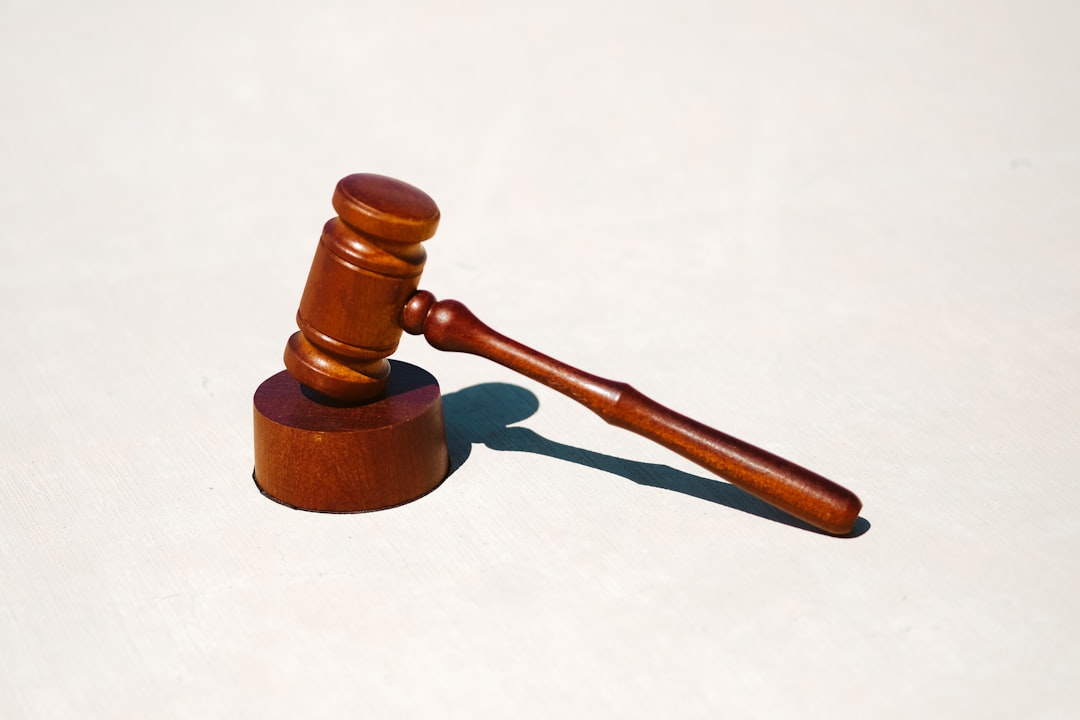Maine's Do Not Call Registry is a powerful tool to combat spam calls, offering residents control over their communication preferences. By registering and using the registry's tools, Mainers can significantly reduce unwanted calls. Understanding federal laws like the TCPA and consulting specialized spam call law firms or lawyers Maine ensures greater protection. Proactive measures include call-blocking apps and seeking legal solutions for persistent spam issues, ensuring peace of mind in a bustling digital age. Maine's successful approach inspires nationwide change, with collaborations between state officials, national organizations, and legal experts aiming to enhance consumer privacy and preferences.
Maine’s Do Not Call Registry has emerged as a powerful tool in the battle against relentless spam calls. This comprehensive guide delves into the program’s success stories, revealing how Maine residents have reclaimed their peace of mind. We explore the legal landscape, including spam call laws and firms, offering practical strategies for protection. Learn how to stop unwanted calls effectively and discover the future of spam call regulation in Maine, ensuring a quieter, more secure communication environment with expert advice from top TCPA lawyers state-side.
Understanding Maine's Do Not Call Registry: A Comprehensive Guide

Maine’s Do Not Call Registry is a powerful tool designed to protect residents from unwanted and intrusive spam calls. Understanding this registry and your rights under it is essential, especially given the relentless rise in spam call laws like the Telephone Consumer Protection Act (TCPA). The TCPA strictly regulates how businesses can contact consumers by phone, and violators face severe penalties.
If you’re looking to stop spam calls in Maine or hire a lawyer specializing in spam call law firms Maine, navigating the Do Not Call Registry is a good first step. It’s a comprehensive guide that teaches you how to register your number, what protections it offers, and how to manage your preferences. By knowing your rights and taking proactive measures, you can significantly reduce the volume of unsolicited calls you receive and enjoy greater peace of mind.
The Impact: Success Stories of Maine Residents Fighting Spam Calls

Maine’s Do Not Call Registry has been a game-changer for residents facing an influx of unwanted spam calls. Many Mainers have successfully reduced their daily barrage of telemarketing and scam calls, thanks to this initiative. By registering their phone numbers, residents have asserted control over their communication preferences, allowing them to enjoy more peace and quiet.
Success stories abound, with individuals reporting a significant decrease in spam calls after signing up. Some even share how they were able to block specific call patterns or identify suspicious numbers using the registry’s tools. These positive outcomes highlight the effectiveness of Maine’s anti-spam measures and encourage others to take action by learning how to stop spam calls in Maine, consulting a spam call law firm Maine, or hiring spam call lawyers Maine for more robust solutions.
Navigating the Legal Side: Spam Call Laws and Firms in Maine

In Maine, navigating the legal side of spam calls involves understanding and adhering to state and federal laws designed to protect consumers from unsolicited phone marketing. The Telephone Consumer Protection Act (TCPA) is a key piece of legislation that sets guidelines for telemarketing practices across the nation, including in Maine. Consumers who wish to stop spam calls in Maine have several legal options available to them. They can register their phone numbers on the state’s Do Not Call Registry, which significantly reduces the volume of unwanted calls. Additionally, they may seek assistance from a spam call law firm or hire lawyers specialized in TCPA cases to take legal action against persistent spammers.
Knowing how to stop spam calls in Maine begins with recognizing the rights afforded to residents under the TCPA. Fines for violating these laws can be substantial, acting as a deterrent for businesses engaging in unsolicited calling. Consumers who experience high volumes of spam calls despite being on the Do Not Call Registry can report these incidents to Maine’s regulatory bodies or consult with legal professionals experienced in handling such cases. Spam call lawyers in Maine are well-versed in navigating the complexities of TCPA compliance, ensuring that both businesses and consumers understand their rights and responsibilities under this critical legislation.
Strategies to Protect Yourself: How to Stop Unwanted Spam Calls

In today’s digital era, unwanted spam calls have become a prevalent and frustrating issue for many Mainers. Fortunately, there are several effective strategies to protect yourself from these intrusive phone calls. One of the primary steps is to register your number on Maine’s Do Not Call Registry. This official list helps prevent telemarketers from calling residents who have opted out of such calls. Additionally, using call-blocking apps or software can significantly reduce spam calls by identifying and blocking numbers associated with unwanted advertising.
For those experiencing a high volume of spam calls, consulting a reputable spam call law firm in Maine or hiring spam call lawyers specializing in TCPA (Telecommunications Consumer Protection Act) compliance is advisable. These legal professionals can guide you on taking legal action against persistent spammers and help ensure your rights are protected under Maine’s spam call laws. By combining these practical measures, individuals can reclaim their peace of mind and control over their communication channels.
The Future of Spam Call Regulation: What's Next for Maine?

As Maine’s Do Not Call Registry continues to gain traction and success, the future of spam call regulation looks promising. The state’s proactive approach in protecting residents from unwanted telemarketing calls has set a precedent for other jurisdictions. With the ever-evolving telecommunications landscape, there is an increasing demand for more stringent measures against spam calls. This has prompted further discussions on enhancing federal laws like the Telephone Consumer Protection Act (TCPA).
Maine’s experience with its registry can inform future strategies to combat spam calls nationwide. Expanding on the success of this initiative, the state may consider collaborating with national organizations and legal experts, including spam call law firms and lawyers specializing in TCPA cases. By sharing best practices, they can develop comprehensive solutions that adapt to new technologies while ensuring consumers have a say in how they receive marketing communications. This collaborative effort will be crucial in maintaining a robust defense against spam calls and protecting the privacy of Maine residents going forward.






